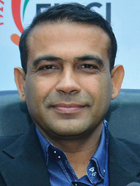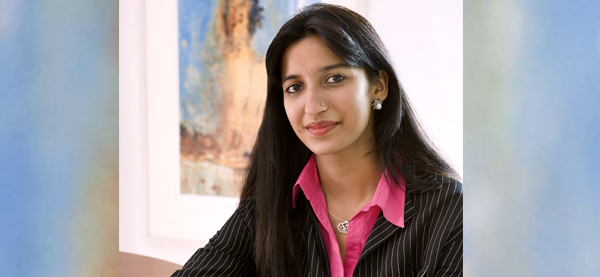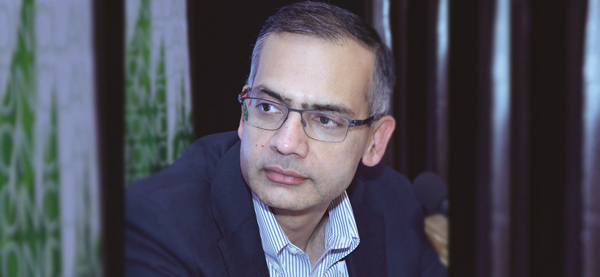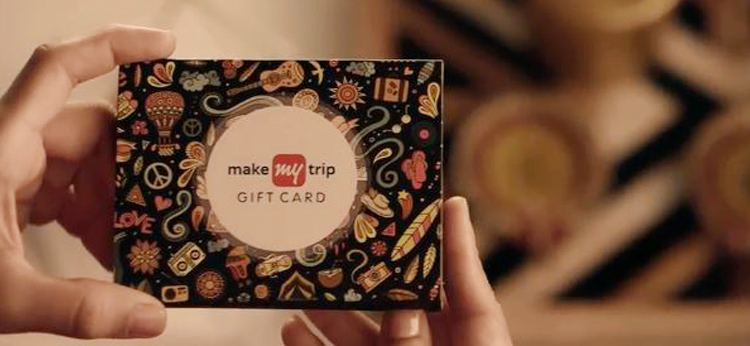The session dedicated to decoding the churnings in the hospitality space and the evolution of hotel distribution systems with the advent of OTAs in the marketspace. Hoteliers discuss latest trends and the way forward in an engaging session.
Mohit Gupta: Two things that OTAs do well for them and two things that OTAs do not do so well.

CHAIRMAN & MD,
SVENSKA DESIGN HOTELS
Zia Sheikh: One thing is very clear. Jury is not out on whether OTAs are needed or not. They are very much a part of the ecosystem of the travel and hospitality space. So, you are being very modest when you say whether OTAs have value or not. I think we can always discuss, debate and fight with OTAs on the level of commission they charge, but they are here to stay and we cannot live without them as much as they cannot live without us. Overall, I think this topic is very interesting because technology has been disrupting a whole host of industries and hospitality, specifically, has I think has undergone a lot of turbulence. Typically, hotels used to be owned, asset-heavy, long-gestation periods, needing a lot of investment and suddenly we had a small company named Airbnb come in totally c hanging the dynamics. Today, Airbnb is the largest hotel chain in the world without owning a single hotel. Their market cap is more than, I think, top five hotel chains combined and that is really the result of technology. That is the level of disruption and innovation which is happening.
The challenge for hotels is to not look at it as a challenge but as an opportunity. An opportunity, basically, to grow their brand, increase their distribution networks by leveraging technology and players that have gone into this space on the back of this technology.
I think it has become far easier for us to get our distribution capability and sell our room across the world with those technological advances.
Mohit Gupta: I will not let you off the hook easy. You did not mention about two things that they do not do so well?
Zia Sheikh: If you see the travel landscape, and travel agents would probably empathise with me when I say that a typical travel agent’s commission is usually capped at 10%, but as an OTA you can get away with 20-25% which I think is unfair. There is a lot of concentration of power in the hands of OTAs which should be a little more rationalised. That is one thing I do not really like about OTAs.
The second one and I think it is more so with smaller chains like us, OTAs are passing on a lot of their commission back to the customer, just to grab market share. It is not bad because they are able to sell rooms at cheaper rates. Their effective commission is, often, close to zero, but it impacts rate parity. We constantly have fights with OTAs to maintain rate parity. When we maintain it on our website, why should you be discounting on your channels.
Mohit Gupta: Two things that OTAs do well for them and two things that OTAs do not do so well.

CO-FOUNDER,
TREEBO HOTELS
Sidharth Gupta: I think, if we step back a little bit, I see OTAs, particularly MakeMyTrip, as pioneers of e-commerce in India. If you think about categories of products and services that Indians learnt to buy online was travel. It is a foregone conclusion in, at least, some consumer segments that online is the best way to buy. OTAs deserve a lot of credit for providing a sense of convenience to the consumer.
The second thing, I totally agree with Zia, the presence of OTAs has literally allowed the emergence of internet-first brands like ourselves. So, we are a brand that is a new-age hotel chain, Treebo.
Similar to fashion and other segments, until a few years back, where a new entrant would have nearly impossible to break through the entry barriers of having physical distribution. That has changed now thanks to OTAs.
Two things that OTAs have not done…the first thing I would mention is that in terms of differentiating, in terms of truly providing the customer assurance, not just for online booking and its convenience, as far as providing quality of experience is concerned, that as I said does not fall in the purview of OTAs. OTAs, by definition, would want to be open platform where all types of supply enlist and made available for online booking. Indeed, as far as the customer point of view is concerned, even if I am booking a property online, I need to take the risk of finding out what kind of experience I am going to have, actually, at the property, irrespective of the source of booking.
The second thing that I would like to see more of, and I think that is happening with some OTAs, at least is to democratize the platform fully. Making them much more data dependant, much more autopilot if you may where hotel chains are able to use a lot of data and look at their content score.
OTAs are the distributors and hotels have the product. The relationship is only complimentary.
Mohit Gupta: Two things that OTAs do well for them and two things that OTAs do not do so well.

CEO, NEEMRANA HOTELS
Sonavi Kaicker: I am going to give a very different perspective from a heritage viewpoint, because we only ventured into the OTA industry about 4-5 years ago, and it has been a phenomenal experience for us in terms of learning. We had to adapt our entire concept to reach out to different customers across the world that are using different OTAs. For example, in our flagship hotel, Neemrana Fort Palace, every room is a category. If you are booking Chandra Mahal, there is only one of it; if you are booking Deva Mahal, there is one of it. How do you convey that to someone sitting in France or Germany who is looking at booking 3 Chandra Mahal? We said, let us create a different category. So, we created heritage romance, heritage comforts, all kinds of different names which was moving away from what our brand identity was.
It has done really well. We have seen growth in figures too. So, I would say that there is no doubt that OTAs are here to stay. They are a part of the travel industry, and stronger than some of our offline partners as well.
Challenge for us is that some of our properties, and other heritage hotel chains, are in remote locations. While we understand that, even MakeMyTrip for example sometimes does not part way with guest information. There are others as well, Expedia does not either. It is not always about heritage hotels taking customers away. Sometimes, it is also about being able to reach the customer, in case there has been a landslide, or to suggest an alternate route to the property. So, here we feel that it would be great if there is more flexibility. And, of course, rate parity is also very important. It is very important for OTAs to respect that because at the end of the day when a customer calls a hotel chain after doing his R&D on five different portals, he asks why should I book with you and not from some other platform. That makes rate parity very important.
Mohit Gupta: What is your take on what OTAs could do better to help distribute your hotel or the offering that you have?
Sonavi Kaicker: I think it is very important for every hotel chain, if they have the budget, to invest in channel manager. There is a lot of confusion in terms of availability when you are looking at the brand website and when you are looking at distribution across platforms. So, that is one aspect.
The second aspect is that there is variation in terms of what customers expect, because they are looking at one particular photograph online, and expect to stay in that particular room, they could be disappointed. Not because of the hotel, but because of the rooms of the OTAs.
Mohit Gupta: What can OTAs do better for boutique hotels as a platform?
Zia Sheikh: One of the things that I really like is that MakeMyTrip has come up with a separate segment of boutique hotels, because people who are travelling and want to stay in a boutique hotel, it is very difficult for them to find one, when they search for five-star or four-star hotels on a OTA.
Internationally, now, and increasingly, I think in India there is a big move towards these individual experiences. What I have seen globally is that people do not want the same room and experience whether they are in X city, Y city or Z city. They want to try out boutique experiences and more personalised services. So, these kind of travellers who initially used to be more creative like designers, and so on, has been adopted by the more mainstream as well. That is where I think OTAs can really help by having this separate category where people can very easily go and book it.




































